
Discover Akpakpa: The Vibrant Heart of Cotonou
Akpakpa, one of the most dynamic neighborhoods in Cotonou, Benin's bustling economic capital, offers a blend of traditional charm and modern vibrancy that is sure to captivate any traveler. As you wander through its lively streets, you will encounter a rich cultural tapestry woven from the threads of local markets, historical sites, and contemporary developments. A visit to Akpakpa is incomplete without exploring its vibrant markets. The Dantokpa Market, one of the largest open-air markets in West Africa, is a sensory overload of colors, sounds, and smells. Here, you can find everything from fresh produce and local spices to traditional crafts and textiles. It’s a perfect spot to pick up unique souvenirs and experience the daily life of the locals. For those interested in history and culture, Akpakpa is home to several important landmarks. The Notre Dame des Apôtres, a beautiful Catholic cathedral, stands as a testament to the region's rich religious heritage. Additionally, the neighborhood's proximity to the coastline provides opportunities for relaxing beach outings and picturesque sunset views. Akpakpa also boasts a thriving culinary scene. Street food vendors and local restaurants offer a taste of Benin’s delicious cuisine, with dishes like 'pâte' (corn dough) and 'amiwo' (tomato-based cornmeal) that are sure to tantalize your taste buds. Whether you’re a history buff, a foodie, or simply looking to immerse yourself in the local culture, Akpakpa has something to offer for every traveler.
Local tips in Akpakpa
- Visit Dantokpa Market early in the morning to avoid the crowds and get the freshest produce.
- Carry small denominations of the local currency (CFA Franc) for easier transactions in markets and with street vendors.
- Dress modestly when visiting religious sites like Notre Dame des Apôtres to show respect for local customs.
- Try local dishes from street food vendors for an authentic taste of Beninese cuisine.
- Stay hydrated and use sunscreen, especially when exploring outdoor markets and coastal areas.
Discover Akpakpa: The Vibrant Heart of Cotonou
Akpakpa, one of the most dynamic neighborhoods in Cotonou, Benin's bustling economic capital, offers a blend of traditional charm and modern vibrancy that is sure to captivate any traveler. As you wander through its lively streets, you will encounter a rich cultural tapestry woven from the threads of local markets, historical sites, and contemporary developments. A visit to Akpakpa is incomplete without exploring its vibrant markets. The Dantokpa Market, one of the largest open-air markets in West Africa, is a sensory overload of colors, sounds, and smells. Here, you can find everything from fresh produce and local spices to traditional crafts and textiles. It’s a perfect spot to pick up unique souvenirs and experience the daily life of the locals. For those interested in history and culture, Akpakpa is home to several important landmarks. The Notre Dame des Apôtres, a beautiful Catholic cathedral, stands as a testament to the region's rich religious heritage. Additionally, the neighborhood's proximity to the coastline provides opportunities for relaxing beach outings and picturesque sunset views. Akpakpa also boasts a thriving culinary scene. Street food vendors and local restaurants offer a taste of Benin’s delicious cuisine, with dishes like 'pâte' (corn dough) and 'amiwo' (tomato-based cornmeal) that are sure to tantalize your taste buds. Whether you’re a history buff, a foodie, or simply looking to immerse yourself in the local culture, Akpakpa has something to offer for every traveler.
Iconic landmarks you can’t miss
Dantokpa Market
Explore the vibrant Dantokpa Market in Cotonou, where local culture, diverse goods, and delicious flavors come together in a bustling atmosphere.
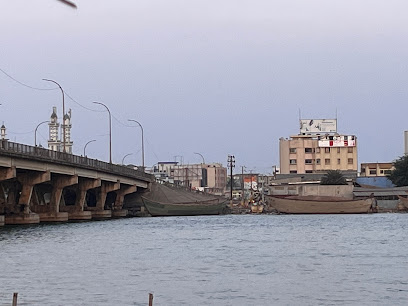
Red Star Square
Immerse yourself in the vibrant history and culture of Cotonou at Red Star Square, a lively hub for locals and tourists alike.
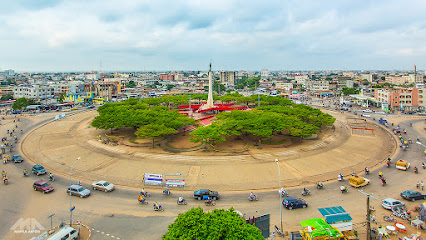
Place du Souvenir, ex Place des Martyrs
Explore the rich history of Benin at Place du Souvenir, a serene landmark honoring the nation's resilience and cultural heritage.
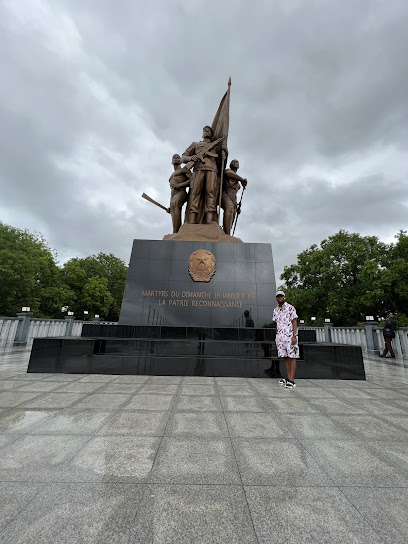
Place Lénine
Explore the historical beauty of Place Lénine in Cotonou, where culture and heritage come alive in a vibrant urban setting.
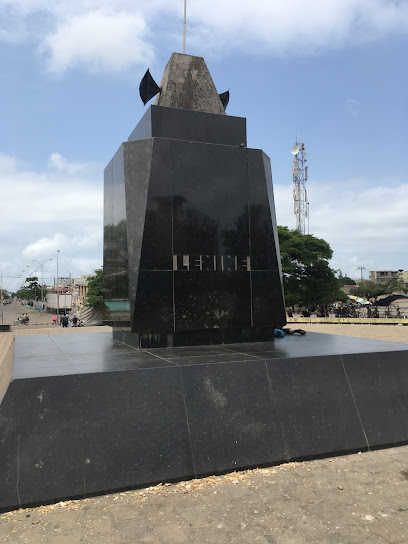
Monument Bio Guera
Discover the Monument Bio Guera in Cotonou, a historical landmark that encapsulates the rich cultural heritage of Benin and its iconic narratives.
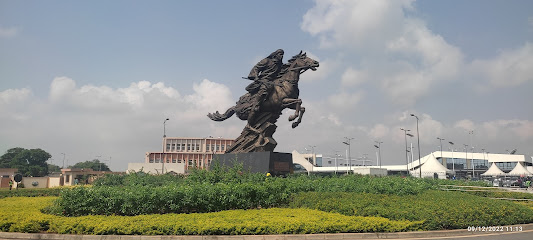
Nature Tropicale ONG
Discover the enchanting biodiversity of Benin at Nature Tropicale ONG, a must-visit museum in Cotonou dedicated to conservation and education.

Monument aux Dévoués
Explore the Monument aux Dévoués in Cotonou, a historical landmark honoring national heroes, surrounded by serene gardens and rich cultural heritage.
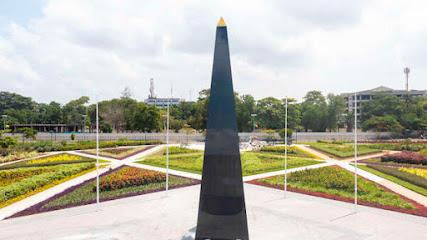
Q2 AKPAKPA
Discover the vibrant nightlife of Cotonou at Q2 AKPAKPA, a bar that blends local flavors with a lively atmosphere for an unforgettable experience.
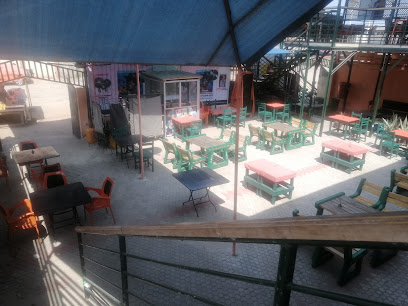
Plage Akpakpa
Experience the tranquility of Plage Akpakpa, a serene beach in Cotonou, where relaxation meets stunning coastal views for an unforgettable escape.
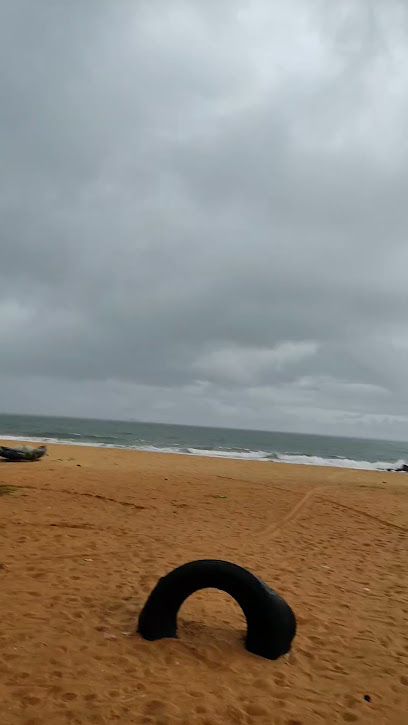
Akpakpa
Explore the vibrant fashion landscape of Cotonou at Akpakpa, where local design meets contemporary style in a unique shopping experience.
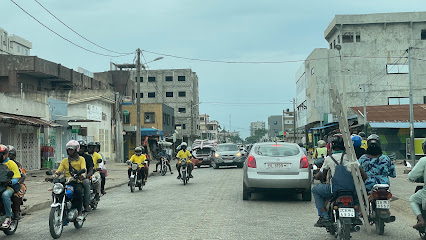
Unmissable attractions to see
Place Lénine
Discover the historical significance of Place Lénine, a cultural icon in Cotonou that celebrates Benin's rich heritage and vibrant community.
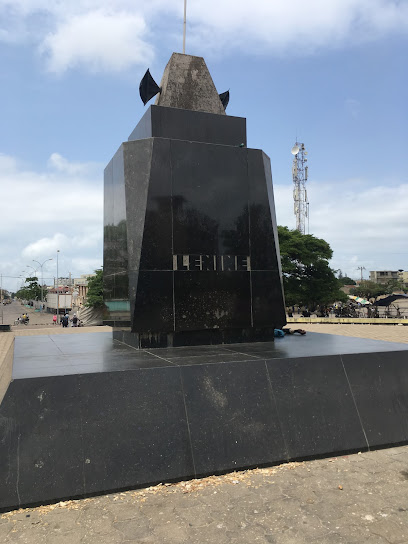
Route des peches
Experience the vibrant culture and stunning culinary delights of Route des Peches in Cotonou, a must-visit destination for every traveler.
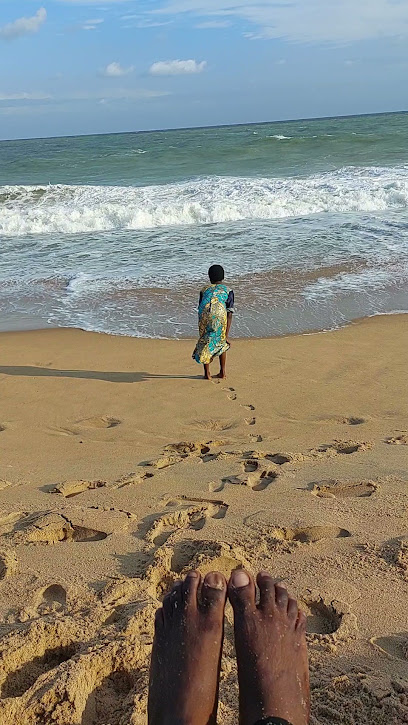
Plage Akpakpa
Discover the serene beauty of Plage Akpakpa, a picturesque beach in Cotonou perfect for relaxation and water sports on the Benin coast.
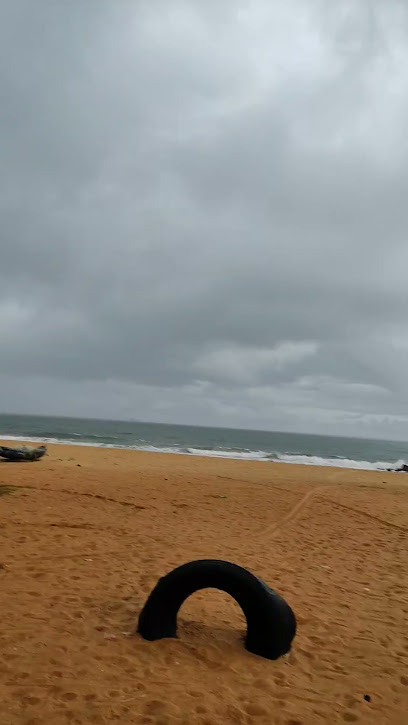
Essential places to dine
Restaurant TOUTESTPOSSIBLE
Savor authentic Beninese cuisine at Restaurant TOUTESTPOSSIBLE - where every meal tells a story.
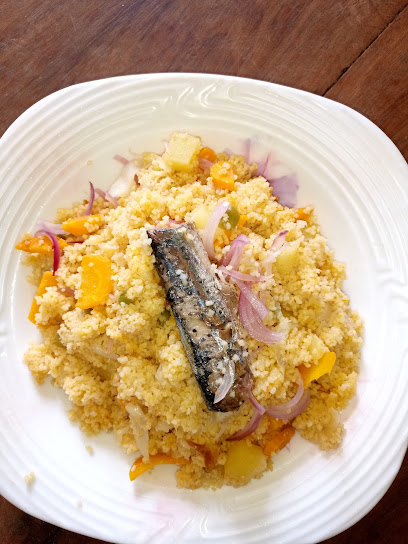
GOOD TASTE Bénin
Experience the flavors of Benin at GOOD TASTE Bénin - where delicious cuisine meets warm hospitality.
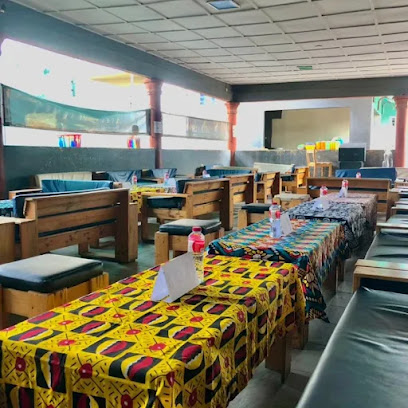
Restaurant Bar a jus et Infusion Elohim
Discover authentic Beninese flavors at Restaurant Bar a jus et Infusion Elohim – where every dish tells a story.
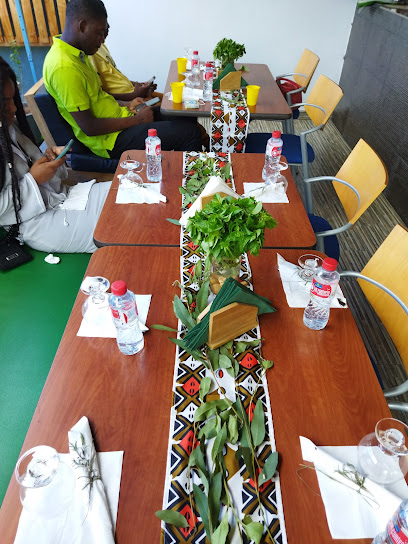
Restaurant PDF
Experience authentic Beninese flavors at Restaurant PDF in Cotonou - a culinary gem blending tradition with modernity.
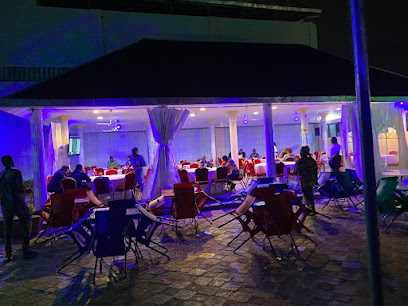
Afrik's Meals
Discover authentic Beninese flavors at Afrik's Meals in Cotonou – a culinary treasure trove waiting to be explored.
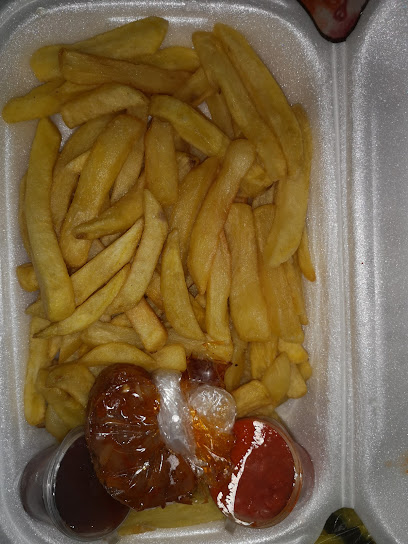
Delices de Jeny
Experience the authentic flavors of Benin at Delices de Jeny, where every dish tells a story and every meal is a celebration.
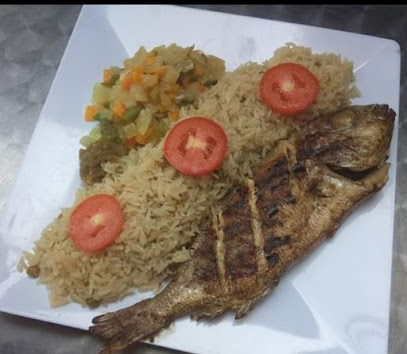
Restaurant Santa Maria Akpakpa
Savor the authentic tastes of Benin at Restaurant Santa Maria Akpakpa in Cotonou – where every dish tells a story.
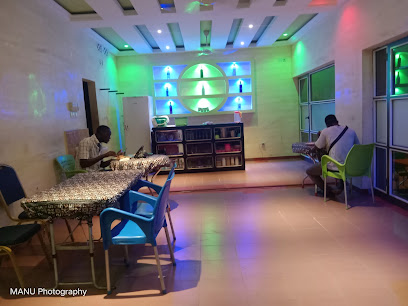
The Fruit Bender
Discover vibrant health food at The Fruit Bender in Cotonou - where fresh ingredients meet local flavors for an unforgettable dining experience.

Moins Chèrs
Discover authentic Beninese flavors at Moins Chèrs in Cotonou - where every meal tells a story.

Restaurant ambassade
Experience authentic Beninese flavors at Restaurant Ambassade in Cotonou, where every dish tells a story.

Markets, malls and hidden boutiques
Akpakpa
Explore Akpakpa, a vibrant clothing store in Cotonou, where local fashion meets unique styles for an unforgettable shopping experience.
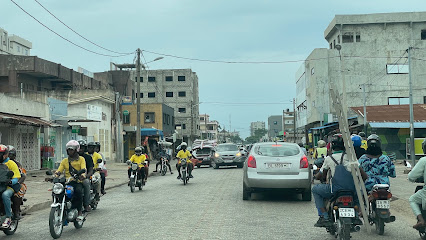
Afrik Online Shop
Discover unique fashion at Afrik Online Shop in Cotonou, offering a curated selection of underwear, lingerie, men's clothing, and sportswear.
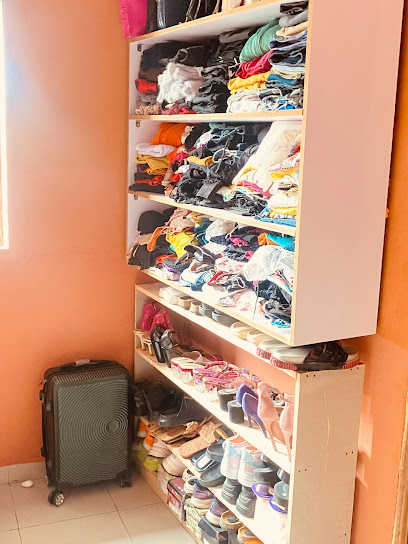
Kdys Lingerie
Discover the elegance of lingerie shopping at Kdys Lingerie in Cotonou, where style meets comfort in a welcoming atmosphere.

Aseme & fils
Discover the vibrant shopping experience at Aseme & Fils in Cotonou, where local culture meets modern retail in a lively atmosphere.
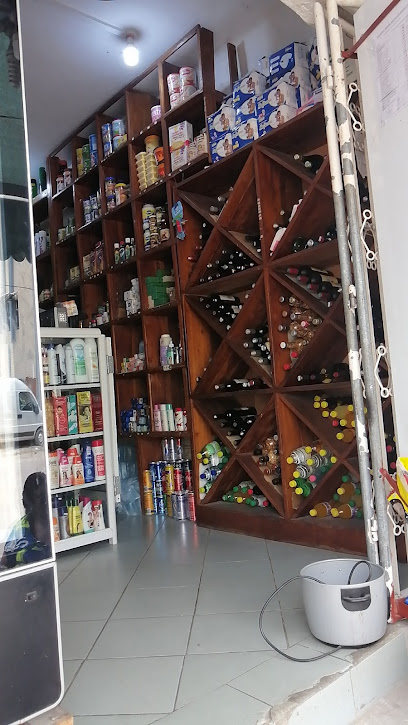
E-Store Bénin
Explore E-Store Bénin in Cotonou for a unique shopping experience showcasing local crafts, culture, and creativity in the heart of Benin.

Senashopakpakpa
Explore the vibrant fashion scene at Senashopakpakpa, a cultural gem in Cotonou offering unique clothing that reflects the rich traditions and modern styles of Benin.
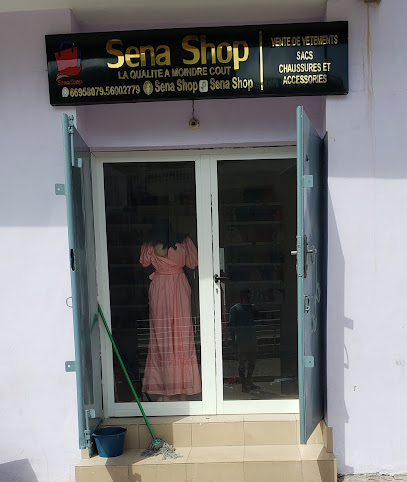
Never give up et fils
Explore a vibrant consignment shop in Cotonou, filled with unique treasures, local handicrafts, and vintage finds, perfect for souvenirs.

HabilleurChausseur
Explore vibrant fashion at HabilleurChausseur, where Beninese culture meets contemporary style in Cotonou.

Betty's global Enterprises
Discover Cotonou's Finest Fashion Accessories at Betty's Global Enterprises - A Treasure Trove of Style and Culture.

DE-BONHEUR ET FILS
Explore DE-BONHEUR ET FILS in Cotonou for a unique collection of magazines and experience the vibrant culture of Benin through literature.

Essential bars & hidden hideouts
The Garden Rooftop - Bar - Restaurant
Experience Cotonou's nightlife at The Garden Rooftop, a perfect blend of exquisite cuisine and stunning city views.
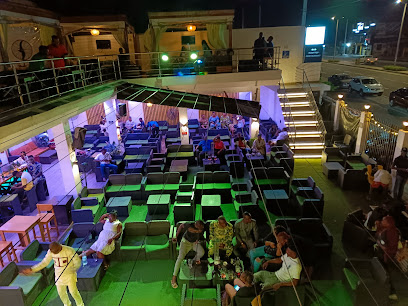
Homeboy lounge bar
Experience vibrant nightlife at Homeboy Lounge Bar in Cotonou, where music, drinks, and local culture come alive in an unforgettable atmosphere.

Veniz Lounge-Bar/Restaurant
Indulge in exquisite cocktails and delectable cuisine at Veniz Lounge-Bar/Restaurant, the ultimate nightlife destination in Cotonou.
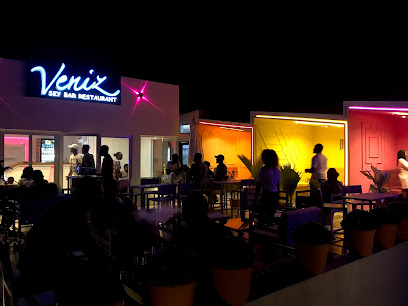
Three One lounge bar restaurant
Experience the vibrant culinary scene at Three One Lounge Bar Restaurant in Cotonou, blending delicious local flavors with a lively atmosphere.
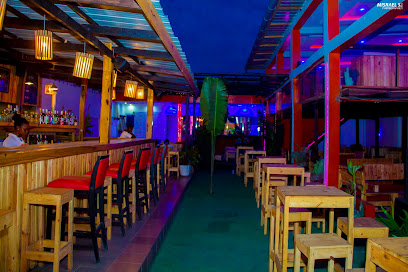
Le Djabi lounge bar
Discover the lively ambiance and exquisite tapas at Le Djabi Lounge Bar in Cotonou, your gateway to unforgettable nightlife experiences.
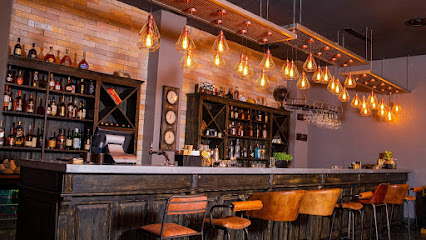
BAR Terrasse Akpakpa
Discover the lively atmosphere of BAR Terrasse Akpakpa in Cotonou, where local culture meets affordable drinks in a friendly setting.
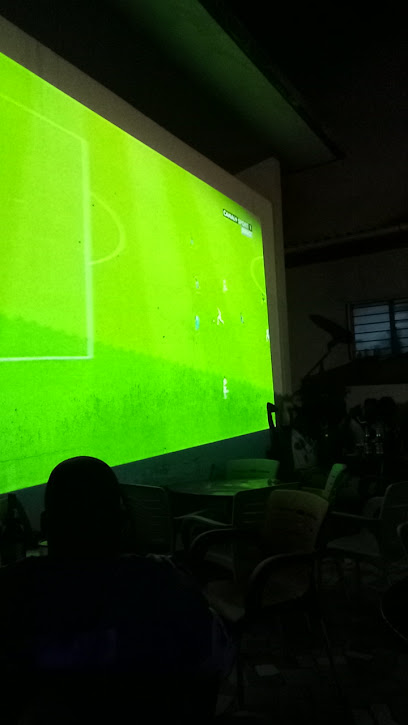
Cosy Pool - Lounge Bar et Restaurant
Discover a vibrant atmosphere at Cosy Pool - Lounge Bar et Restaurant, where relaxation meets delightful cuisine in the heart of Cotonou.
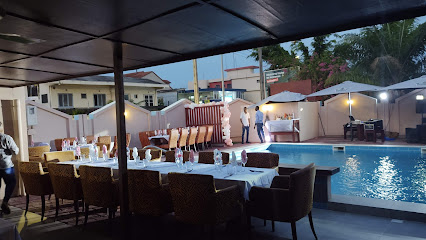
D'PACIFIC BAR & LOUNGE
Experience vibrant nightlife and exquisite grilled dishes at D'PACIFIC BAR & LOUNGE in Cotonou, the perfect blend of culture and cuisine.
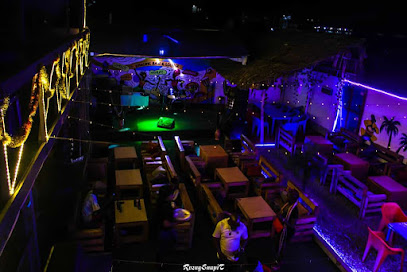
Story lounge bar & restaurant
Savor the taste of Benin at Story Lounge Bar & Restaurant in Cotonou, where local flavors meet international flair in a vibrant setting.
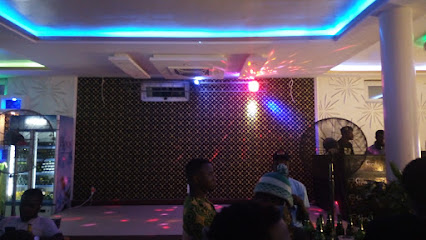
LUCK Lounge Benin
Experience the vibrant nightlife of Cotonou at LUCK Lounge, where stylish ambiance meets delicious cocktails and live entertainment.
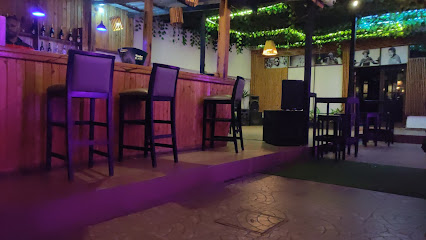
Local Phrases
-
- HelloẼkaabo
[eh-kah-boh] - GoodbyeOdabo
[oh-dah-boh] - YesBẹẹni
[beh-eh-nee] - NoBẹlẹ
[beh-leh] - Please/You're welcomeJọ
[joh] - Thank youO ṣe
[oh sheh] - Excuse me/SorryE ma binu
[eh mah bee-noo] - How are you?Bawo ni?
[bah-woh nee] - Fine. And you?Daadaa. O da?
[dah-dah. oh dah] - Do you speak English?Ṣe o fẹ milọ s'ẹde Yorùbá?
[sheh oh feh mee-loh seh-deh yoh-roo-bah] - I don't understandKò ní rírò
[koh nee ree-roh]
- HelloẼkaabo
-
- I'd like to see the menu, pleaseMo fẹ rọ awọn ọwọọ, jọ
[moh feh roh ah-wohn oh-woh, joh] - I don't eat meatMá rí ẹran
[mah ree eh-rahn] - Cheers!Ẹyin
[ey-in] - I would like to pay, pleaseMo fẹ rọ ọwo, jọ
[moh feh roh oh-woh, joh]
- I'd like to see the menu, pleaseMo fẹ rọ awọn ọwọọ, jọ
-
- Help!Ẹ jọ
[eh joh] - Go away!Lọ lẹẹkọ
[loh leh-koh] - Call the Police!Wọ ohun ìdìlé!
[woh oh-hoon ee-dee-leh] - Call a doctor!Wọ ọkàn
[woh oh-kahn] - I'm lostMo rí ọmọdé
[moh ree oh-moh-deh] - I'm illMo bẹrẹ
[moh beh-reh]
- Help!Ẹ jọ
-
- I'd like to buy...Mo fẹ rọ...
[moh feh roh] - I'm just lookingMo ní ń wọ
[moh nee nwoh] - How much is it?Ọwo ni?
[oh-woh nee] - That's too expensiveNípa ti ọwo wà
[nee-pah tee oh-woh wah] - Can you lower the price?O le ṣi ilọwo?
[oh leh shee ee-loh-woh]
- I'd like to buy...Mo fẹ rọ...
-
- What time is it?Kini ọkan?
[kee-nee oh-kahn] - It's one o'clockOkan tó
[oh-kahn toh] - Half past (10)Mẹta lẹhin
[meh-tah leh-heen] - MorningÒṣì
[oh-shee] - AfternoonỌsan
[oh-sahn] - EveningAlẹ
[ah-leh] - YesterdayỌnà ọjọ́
[oh-nah oh-joh] - TodayỌjọ́
[oh-joh] - TomorrowỌla
[oh-lah] - 1Okan
[oh-kahn] - 2Meji
[meh-jee] - 3Mẹta
[meh-tah] - 4Mẹrin
[meh-rin] - 5Marun
[mah-roon] - 6Meje
[meh-jeh] - 7Mẹjọ
[meh-joh] - 8Mẹsan
[meh-sahn] - 9Mẹjọdọ
[meh-joh-doh] - 10Mẹwa
[meh-wah]
- What time is it?Kini ọkan?
-
- Where's a/the...?Nibo ni...?
[nee-boh nee] - What's the address?Kini adirẹsi?
[kee-nee ah-deh-reh-see] - Can you show me (on the map)?O le mu mi?
[oh leh moo mee] - When's the next (bus)?Níbẹ ni o wà?
[nee-beh nee oh wah] - A ticket (to ....)Ẹya tẹtíkẹti (si ....)
[eh-yah teh-tee-keh-tee see]
- Where's a/the...?Nibo ni...?
History of Akpakpa
-
Akpakpa's history is deeply entwined with the colonial era of Cotonou, which began in the late 19th century when the French established their presence in the region. The neighbourhood became a crucial part of the French colonial administration, facilitating trade and commerce along the coast of Benin. Its strategic location made it an integral hub for the export of palm oil and other resources, shaping its economic landscape.
-
Throughout the 20th century, Akpakpa evolved into a vibrant melting pot of ethnicities, primarily influenced by the Yoruba and Fon cultures. This diversity is reflected in the local traditions, languages, and festivals that celebrate the rich heritage of the community, such as the annual Voodoo Festival which showcases the spiritual practices native to the region.
-
Post-independence in 1960, Akpakpa witnessed significant urbanization as Cotonou expanded rapidly. The area became a focal point for infrastructure development, with the establishment of schools, markets, and healthcare facilities. This transformation led to a demographic shift, as people from various parts of Benin migrated to Akpakpa in search of better opportunities, further enriching its cultural tapestry.
-
In recent decades, Akpakpa has experienced economic diversification. While traditional markets still thrive, new business ventures, including services and manufacturing, have emerged. The neighbourhood's proximity to the Cotonou port has allowed it to become a hub for logistics and trade, reinforcing its significance in the regional economy of Benin.
-
Despite its growth, Akpakpa has faced social challenges, including urban poverty and inadequate infrastructure. Community organizations and local leaders have mobilized efforts to address these issues through grassroots initiatives focused on education, health, and sustainable development. This resilience demonstrates the community's commitment to improving the quality of life for its residents while preserving its unique cultural identity.
Akpakpa Essentials
-
Akpakpa is easily accessible from various neighborhoods in Cotonou. If you're arriving from the city center, you can take a taxi or a motorcycle taxi (zémidjan) for a quick journey. Public buses also connect Akpakpa with major areas in Cotonou, including the central bus station and the airport. The journey typically takes about 20-30 minutes, depending on traffic.
-
Akpakpa is best explored by foot, as many attractions are nearby. For longer distances, you can use local taxis or motorcycle taxis, which are affordable and readily available. Bicycles can be rented from various shops, providing an eco-friendly option to navigate the area. Public buses are also an option, but they may be less reliable in terms of schedules.
-
While Akpakpa is generally safe for tourists, it is advisable to remain vigilant, especially in crowded areas. Petty crimes, such as pickpocketing, can occur, particularly around markets and bus stops. Areas near the beach may be less secure after dark, so it's best to avoid them at night. Always keep your belongings secure and be cautious when interacting with strangers.
-
In case of an emergency, dial 118 for police assistance or 122 for medical emergencies. Local hospitals and clinics are available in Akpakpa, and it is advisable to have travel insurance that covers medical emergencies. For minor health issues, pharmacies are scattered throughout the neighborhood, offering basic medications.
-
Fashion: Do dress modestly and comfortably, especially in local markets. Avoid overly revealing clothing. Religion: Do respect local customs and traditions, especially in religious areas. Public Transport: Do give up your seat to elderly passengers. Don't engage in loud conversations or disruptive behavior. Greetings: Do greet locals with a smile and a handshake. Eating & Drinking: Do try local street food, but ensure it's from reputable vendors. Don't waste food, as it is considered disrespectful.
-
To experience Akpakpa like a local, visit the vibrant markets where you can find fresh produce and traditional crafts. Engage with local vendors, as they often enjoy sharing stories and insights about their products. Don't miss the opportunity to try local delicacies such as akassa and piment, and consider visiting nearby beaches for a relaxing afternoon. Participating in local festivals can also provide an authentic cultural experience.
Nearby Cities to Akpakpa
-
Things To Do in Porto-Novo
-
Things To Do in Ouidah
-
Things To Do in Lokossa
-
Things To Do in Aneho
-
Things To Do in Lagos
-
Things To Do in Abeokuta
-
Things To Do in Lomé
-
Things To Do in Notse
-
Things To Do in Atakpamé
-
Things To Do in Ibadan
-
Things To Do in Kpalimé
-
Things To Do in Ho
-
Things To Do in Koforidua
-
Things To Do in Accra
-
Things To Do in Benin City








